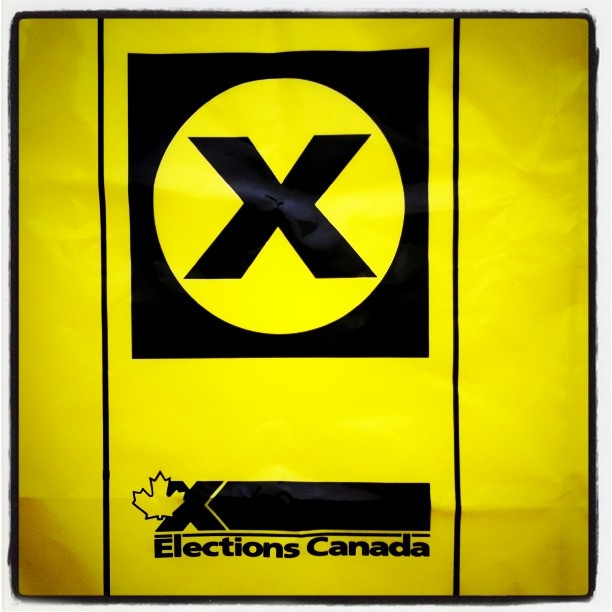Is voter suppression becoming the new normal in Canada? Unfortunately, it looks like the short answer is yes.
The Harper government took the opportunity on Wednesday to commemorate International Human Rights Day by introducing new legislation that could make it much more difficult for Canadian citizens living abroad to exercise their right to vote.
Just like the so-called “Fair” Elections Act, this legislation could be unconstitutional.
‘Citizen Voting Act’ an abuse of power
Bill C-50, the so-called Citizen Voting Act (or more accurately: the Preventing More Citizens from Voting Act) is a transparent attempt by Harper’s Conservative government to suppress the votes for other parties. Again.
The bill has the potential to prevent Canadians living abroad from exercising their democratic right to vote in free and fair elections. Canadian expats happen to be more likely to vote for parties other than the Conservatives, but disliking how someone votes doesn’t mean a government can take away their right to do so.
A ruling earlier this year from Ontario Superior Court Justice Michael Penny ended the voting ban for 1.4 million Canadians who had lived abroad for more than five years, striking down the existing law as unconstitutional. The Harper government’s request for a stay of the decision was denied.
According to the Canadian Press, “The government, the judge found, had decided some citizens are “not worthy” to vote despite their constitutional right to do so… “This is not the lawmakers’ decision to make — the Charter makes this decision for us,” Penny wrote… Citizenship, he noted, is a fundamental requirement for voting, not residency.”
Bill C-50 is a blatant abuse of power. The current government is trying to legislate its way around a court decision it doesn’t like to further stack the deck in its favour for the next election. Rather than accept a court ruling that restores voting rights, the government has decided to change the law in a way that infringes voting rights.
Is Bill C-50 unconstitutional?
This Voter Suppression 2.0 Act extends key voter suppression provisions of the “Fair” Elections Act to Canadians living abroad.
This bill will arguably infringe the constitutional voting rights of Canadians abroad by making it more difficult for them to vote than for people currently residing in Canada. It’s an attempt to claw back the voting rights expats just won back in court.
The new law, which you can read here, would prevent expats from being attested for by people residing in Canada who have had their own residence here attested for.
Take a moment to think of the implications for students studying abroad who need to rely attestations from student friends in shared accommodation, who themselves had to be attested for because their name wasn’t on the utility bill – one of the few types of accepted ID with an address on it.
The government is also trying to justify the bill by saying it will extend the “Fair” Elections Act’s “voter identification rules to all Canadians.” They fail to mention that we’re challenging those same rules in court as unconstitutional.
Minister Poilievre is trying to argue that 87 per cent of Canadians support the type of identification requirements in Bill C-50, based on an Ipsos Reid poll about the “Fair” Elections Act earlier this year. However, the poll we commissioned found that 61 per cent actually opposed those provisions, once people were made aware of the fact that the changes “could suppress the votes of over 100,000 people who lack the necessary identification.”
What can we do?
- Contact your MP and call on them to oppose this latest attempt at voter suppression.
- Support the charter challenge to overturn this kind of voter suppression in the “Fair” Elections Act.
Photo: Sean Connors/flickr



